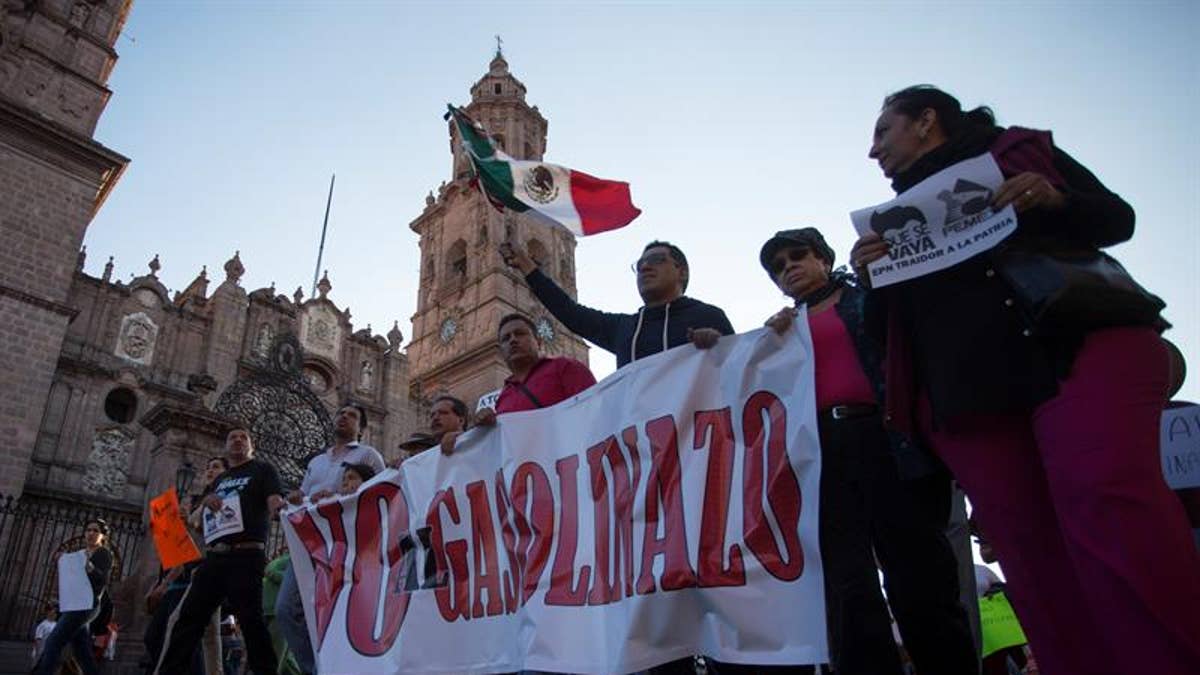
Truckers, transportation workers, grassroots activists and other residents participate in a protest on Jan. 2, 2017, in Morelia, the capital of the western state of Michoacan, against the fuel price hikes in Mexico. (EFE)
The protests over the hike in gasoline prices that took effect on New Year's Day are growing across Mexico, with truckers, transportation workers, grassroots activists and others joining what is shaping up as a new movement against President Enrique Peña Nieto's administration.
The price ceiling increase has increased gas prices by as much as 14 percent and premium prices by as much as 20 percent over the highest levels in December.
Protests have taken taking place in 29 of Mexico's 32 states, with demonstrators blocking highways, marching through the streets and staging sit-ins at facilities belonging to state-owned oil giant Petroleos Mexicanos (Pemex) and National Tax Administration offices.
On Monday and Tuesday, one group blockaded a privately owned gasoline station on Mexico City's main boulevard, shouting: "The people, united, will never be defeated!"
On a busy highway leading into the capital from the west, another group blocked traffic and held up a banner reading "Enough already!"
In Guadalajara, the capital of the western state of Jalisco, some 3,000 people took to the streets across the metropolitan area to protest the rise in fuel prices, blocking some of the main thoroughfares in the area.
The Mexican government says the deregulation is aimed at ending subsidies that largely benefit wealthier Mexicans and at attracting interest in private participation in the newly opened fuel market.
"Unfortunately, it coincided with a significant increase in international oil prices," said Miguel Messmacher, Mexico's assistant finance secretary.
That, and a drop in the value of the Mexican peso against the dollar in 2016, probably would have resulted in gas price hikes last year, but the government was still setting prices then.
Mexico imports much of its gasoline from the U.S., even though it exports crude oil.
Energy industry analysts told Reuters the price increase should not have much of an impact on U.S. refiners, mainly because it affects the retail price and not the wholesale price, which is largely set in the international market.
Citing the U.S. Energy Information Administration, Reuters reported that in the month of September, U.S. finished gasoline sent to Mexico accounted for 60 percent of its exports.
The 2017 price deregulation is part of a broader overhaul of Mexico's energy sector passed two years ago under President Enrique Pena Nieto allowing some private investment and ending more than seven decades of state monopoly over oil.
In a second phase later this year, other companies will be allowed to begin importing and distributing gasoline instead of Pemex handling the entire supply chain.
Based on reporting by the Associated Press and EFE.








































